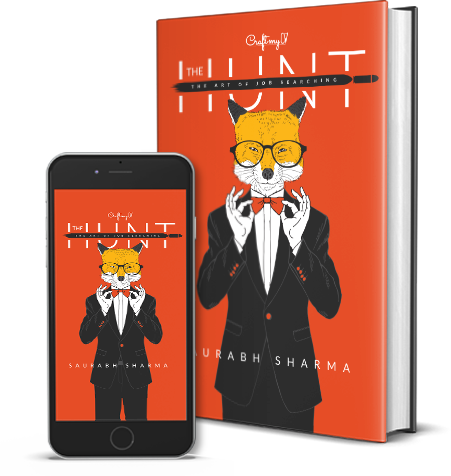Casual interviews are not big deals, but when it comes to job interviews, you know how crucial it is to introduce yourself professionally. If you are a job seeker, you need to understand the importance of self-introduction during an interview.
The introduction is highly imperative because this provides the first impression and establishes credibility with the employer.
Click here to create a resume that can increase your chances of getting hired.

First impressions play a big role in how you are perceived as a candidate by your employer. The things you say during the initial phase of the interview can create a big difference in the result. You probably do not want to feel awkward or perhaps lacking some social skills.
Instead, you would want to show that you have excellent communication skills and professionalism, enough to convince them that you can be a good asset to the company in case you get hired.
Recommended Ways on Introducing Yourself in a Job Interview
A job interview is something that can make you feel nervous, especially if you are a first-time job seeker. To help you easily deal and navigate the process, the following are helpful ways on how to introduce yourself in an interview.
Keep Your Introduction Concise and Short
You will have a chance to present yourself on an in-depth basis during the job interview. Many supervisors and hiring managers will begin the interview with “tell me about yourself.”
The foundation of your answer must focus on the crucial elements in your background. This will enable you to excel during the interview. Create an elevator pitch then practice it. In such a way, you will feel more comfortable introducing yourself.
Evaluate the job carefully prior to the interview so that you will be able to point out personal experiences, skills, interests, and qualities that allow you to meet or even exceed company and job requirements.
Evaluate the job carefully prior to the interview so that you will be able to point out personal experiences, skills and interests.
Focus on Your Core Strengths
Another effective way on how to introduce yourself in an interview is to concentrate on your core strengths and abilities. Your introduction must be concise enough to capture the interviewer’s interest and attention. You can mention some tidbits that are not really connected to the job but can reflect on your character.
Your objective must be to ideally connect with your interviewer and show that you are qualified for the job. Your goal should also be to make an excellent new hire.

Your first comments must show your interest in the company and the job. But do not overdo things or spend all the time talking about yourself. Keep in mind that time might be limited, and the interviewer has his specific agenda.
You, therefore, need to keep your introduction short but impactful so that you can proceed to the next question.
Be Ready for Follow-Up Questions
In most instances, the interviewer might follow up on your introduction with other questions, so be ready for this. You need to remember that you’ll need support and should expand any assertion that you make during your self-introduction.
Be ready to give specific examples of where and how you have used your skills and your assets to carry out tasks, academic projects, volunteer roles, and many other productive endeavours successfully. One effective way to give a comprehensive response is by using the STAR interview technique in describing your achievements and accomplishments.
What’s Star Interview Technique Anyway?
The Star Interview Technique is a particular interview technique providing a straightforward and comprehensive format that you can use to respond to behavioral interview questions. These are types of questions asking to provide real life examples on how you handle work-related situations that you handled in the past.
Learn More about the Star Interview Method
STAR is a structured method of answering questions and discussing particular actions, tasks, situations, and the result of the situation you are actually describing.
Situation
Describes the situation that you were in or tasks that need to be accomplished. You need to describe these specifically and avoid making general descriptions. Make sure to provide the interviewer detailed explanation for him to understand. The situation can be about a previous volunteer experience, a job, or any relevant experiences or events.
Task
This revolves around what you’re really working towards.
Action
This describes the actions you have taken in order to deal with the situation. Keep the focus on no one or nothing else but you. Tell the specific steps that you take or your particular contribution. Avoid talking about what the entire team does when describing actions. It must be about you.
Result
This describes the results of your actions. Do not be shy about taking credits for your good works and behavior. Talk about what happened, how the work or event ends, what you successfully accomplished, and what you have learned. Make sure that your answers will contain numerous positive results.
Make sure to follow all that’s included in the STAR technique and method. As much as possible, remain specific and do not ramble an excessive amount of information. You can even try to include your results even if you are not being asked about them.
Eliminate examples and information that do not really paint impressive and positive light. But, remember that some negative examples and results can also highlight your determination and your strength despite adversities.
Manners Matter at Interviews
Regardless of the type of job you’re applying for, you are expected to act and behave professionally at every phase of the job interview process starting from greeting the interviewer, introduction up to saying thank you after the interview.
Take the time to review some etiquette tips that you can do before, during, and after the interview to make sure that you are mindful of your manners. Be careful about what you say, what to bring, and always answer questions as professionally and politely as possible to make the best impression.
Aside from ways on how to introduce yourself during an interview and how to answer questions, be prepared to ask questions. Prepare a shortlist of questions that you would like to ask your interviewer. Note that asking questions is fine.
You can make use of the interview as your chance not just to highlight your qualifications but also to determine if the employer or the job is a really good fit for you as well as your career goals.
Frequently Asked Questions (FAQs)
How long should you introduce yourself during an interview?
Keep it short and focused, less than a minute at least, and not more than three minutes. You cannot really fit all your great points and qualities in 2 to 3 minutes, so you need to think well on how to present and introduce yourself in a manner that will start the interview on the proper note.
What are the most common questions asked during an interview?
The questions that are commonly asked during interviews include but are not limited to the following:
How would you describe yourself?
What really motivates you?
What inspires you the most about this job?
What makes you more unique than the others?
Is it fine to bring and ask questions during an interview?
It’s 100% acceptable to bring notes or create a list of questions in advance that you can ask your interviewer. In fact, this act demonstrates your interest in the job opportunity and might as well impress the interviewer or the employer.

Leave a Reply